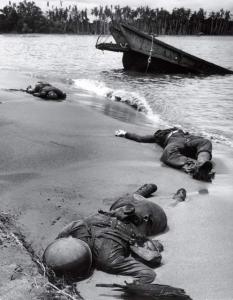The Travail of Dorcas
I could see the image of my mother paddling across those big rivers, battling against the current and the element as companions; rain, storm and mosquitoes – especially sand flies; these were really very naughty insects, swamping all over you in t
The Travail of Dorcas
by DavidBokoloI brought the car gently to a stop at the verge of the road, by the intersection of the two roads. The point looks vaguely familiar, but I do not want to drive up to a cul-de-sac and start asking questions about the right way.
I still find it pleasantly interesting, that I could now drive a car straight to my compound in Nembe. It is a dream comes true. We have heard about the Nembe road since we were kids. We were then not sure which direction it would be coming from, considering the numerous creeks, Mangrove forest, and swamps spread throughout the landscape of the Niger Delta.
We have heard of this road as a fairy tale told by the elders in our village square on a moonlight night, similar to the stories about the tortoise and the lizard. Those have hoped and waited for the emergence of this elusive road till their generation have all passed away.
The only way to come to Nembe, and leave for any other part of the world has been through water, by speed boats and, or by Local boats – these are large wooden ferry boats that travel through the various network of creeks to any destination – sometimes spending over two days, meandering through these creeks, discharging their passengers in the many villages and fishing settlements dotting the various rivers and creeks.
I shuddered at the thought of those journeys, whenever I recall them. Why does it not look possible to me then, that one day, I will have to leave my village, and the fishing settlement to live in the city?
Sitting at the helm of our wooden canoe with my mother, going out to fish was what I was condemned to believe, as the best place for the woman.
This was what my father had believed, that the place for the girl child in the society is the home. Oh, how horrible I felt then, thinking just about that. He never believed that the girl child must need to attend school.
According to him, the place of the woman was to be in the home, helping her husband in his fishing business. Education, as far as he was concerned, was for the boy child. And being the only girl in the family of six children, I had my future condemned, or sentenced to helping my mother in the home as a trainee, to my would-be husband.
That was what my mother was consigned to be; a life of fishing to help her husband, our father: and also to brood children like a fowl.
I was the third child in the family, my two elder brothers, James and Tomworio were staying with our Aunt, Agnes, in Nembe attending school. While two of my younger brothers, inifie and Tamuno live with our grandmother in the village, schooling.
At the age of 12, I have already known the various fishing techniques that we use in catching fish; the different types of hooks and nets we use, and the various fishing seasons for the different type of fish we hunt. At that age, I was already a very good cook; I can cook periwinkle/okro soup, plantain or yam porridge or pepper soup.
These thoughts would always pop up in my mind when I would be alone, and I will consciously push them away, and try to occupy myself with what is presently at hand. This, however, does not help all the time.
I could see the image of my mother paddling across those big rivers, battling against the current and the element as companions; rain, storm and mosquitoes – especially sand flies; these were really very naughty insects, swamping all over you in their thousands, into your ears, eyes and your mouth, as you try to speak.
The strain of these probably led to my mother's early demise. I felt a water drop on my knuckle holding the steering wheel; it was a tear drop. I quickly use the back of my left hand to wipe away the next drop as it begins to form in my eyes.
I rolled down the glass of the window on the passenger's side of the car. There were some cyclists parked there waiting to pick up passengers to their various destinations. I became conscious of the environment I have stopped my car.
There were some small stores building lined along both sides of the road, stocked with all types of wares. I noticed the kids with a tray on their heads, hawking various types of food items. This is a busy road junction, with music blaring out traditional songs from loudspeakers, set outside their shops.
"Hey! Boy," I called out to one of the cyclists. He bent his head to look at me through the opened window."Good Afternoon," I greeted him.
"Yes, Madam, Afternoon," he looked at me inquiringly.
"Please, which is the way to Nembe?"
He raised his head, looked to the right and his left, then jerked his head to the right. "This way," flinging his hand to that direction at the same time.
"Do I need to turn to any other road from here?"
"No, just drive straight on to Kolo, then Oloibiri junction and Ogbia junction; just drive on till you enter Nembe town," he flashed cigarette stained teeth at me. Other cyclists have started converging around their colleague, peering at me.
"Thank you, boys," I waved to them and pulled out the car back onto the road. I can remember the road now. The last time I came this way, I was a passenger on a commercial bus that took us to Ogbia town. We then took a speed boat to Nembe.
I heard that the waterways have now turned to a haven of sea pirate and militants; robbing and molesting passengers plying that route at will. The government has so graciously, completed the Nembe road for anyone to drive straight to their houses.
I felt a sharp pain in my chest. I wish my mother was alive to see me drive a car to the house. Death has shut her out from eating the fruits of her labor. I recalled her pleading with my father to send me to school.
"You cannot deny my daughter from going to school," she had argued regularly with him. "She is my only daughter and I don't want her to end up her life like me; sitting on the helm of her husband's fishing boat."
"Woman, you don't know what you are talking about," he would abuse her. "What benefit will she be to you or to me when she gets married? It will be the husband's name that she'd be bearing. If he decides to send her to school, let him do that,"
"But, do you consider the benefit of education to her and her children; your own grandchildren? The world is changing everywhere; people are sending their female children to school. Queen Elizabeth, I learned, is the King of England, the white man's country. "
"This is not the white man country; this is Nigeria. Tell me, who do you see in this fishing camp that had sent their girl child to school?" He stamped his feet on the floor, "And you are here arguing about sending your only daughter to school. When she gets married and cannot cook in her house, or help the husband to mend his net, they would say that you did not give your daughter a home training."
"Oh! Papa James, why are you doing this to us?" and she would burst into tears.
It has always been like this between them on my account. Sometimes, when I could not bear them any longer, I would run out of the thatched hut, through the back door, and along a track through the mangrove swamp to a particular tree and climb to a Y-shaped branch, about 8 meters high and start weeping until my mother would come to beg me to return home.
The car was going so fast, I could only see the other vehicles on the road as blurs. I stepped on the break and started taking in the scenery of the road. It is a very narrow track that the side of my car was brushing the outgrowth bushes that somebody had neglected to clear. There were lustrously green cassava plants from the roadside farms caressing the car as I drove by.
There were also a lot of plantain plants on both sides of the road. I now begin to see why this area is called the rain belt of the Niger Delta. Behind the farms, there are various types of trees - very tall trees standing over the dense vegetation around them. At some points, I thought, I could hear the sound of loggers with their chainsaws cutting down those trees.
Though all the glasses of the car were rolled up, I could imagine perceiving the smell of the forest; does the forest really smell? I doubt if it does, not as foul odor, though. There were so many beautiful blossoming flowers, mixed up with the decaying dead leaves, and the swampy mud, blending with the ponds, that, what you really perceive as smell has its own peculiar quality of the scent.I was seeing this bush, as I was fleeting by with my car, as the same forest I used to go with our grandmother back in our village.
I slowed down the car as I got to Oloibiri junction. This is the cradle of Nigeria Oil exploration – the natives termed it oil exploitation. The only significant symbol of depicting this historical site is a fenced 'mini Christmas tree' covered with grasses, moss and moist. I drove on; why would anyone call a piece of oil well equipment a Christmas tree.
The road straightens out from Ogbia junction and widened with newly overlaid asphalt leading to Nembe. The traffic was very light and I stepped on the gas.
The vegetation flattened out in front and to my sides, where the contractors had excavated deep troughs to form an embankment of the road, as I left the forest behind to the mangrove swamp with its peculiar smell of mud and crabs; reminding me of my 'Y' tree back in our fishing camp.
I was sitting on my 'Y' tree, observing the flow of the muddy water of the small creek below me, where the ebbing tide was siphoning the waters from the swamp into one gigantic body and bearing it down the river, emptying this into the Atlantic Ocean. It is many miles downstream to where the mouth of the river joined the big sea and...
"There she is," I heard my mother's voice and turned to look."I told you we'll find her here."
She was with Inara, my cousin. Inara is uncle Intimi's daughter. He has all his three daughters and one boy, attending school. He would not listen to my father, his bother-in-law on girl child educational issues.
"Mama, you should have sent someone to look for me," I smiled at Inara and waved, "Hi."
"Come on down, tree girl, let's go to the house." She was wearing a green checked gown and a blue beret. Her feet were bare. Her oval face spreading broadly as she smiled back at me. She would be 16, next August, and was already in college.
I could feel the clothes I was wearing, and consciously refused to look at myself to feel them; a dark gray skirt reaching to almost my ankle, and a dark blouse: I blend smudging with the trees.
I shook my head, "Mama, could you go back to the house? We will be coming soon. I want to talk with Inara briefly," I winked at the girl.
"You won't be long, would you? I have roasted your favorite fish, mullet, for you to sip garri with. I am cooking your favorite soup for dinner," she was already turning to go.
"I have heard, Mama, we will be back soon" I shouted after her. "Come on, Inara, can you climb up to this branch here?" I tapped the branch beside mine.
"Why do you always come to stay in the swamp with all these mosquitoes and snakes all around?" She reached out to a lower branch, and swiftly and 'agilely' swung herself to sit next to me. She reached out to push back a strand of hair that has fallen over my face and peered into my eyes.
"Looking around this swamp, the mangrove trees, the water flowing in and ebbing out; the crabs coming out of their holes when the water has withdrawn, and scampering back in as it flows; I think that is God's power of uniformity. He has set everything for a purpose." I turned to look at the direction of the camps where smoke was drifting out into the sky from every house.
"Dorcas, my sister, you've become a very wise woman to understand the works of God," she leaned back against an outshoot of a branch behind her.
"I spent more time here looking at God from my little world; that's when I am not in the river with Mama fishing. Even there, I looked at the world from the inside. How's your school, Inara?"
"Em, school is exciting and challenging, but we're studying very hard to know the world better." She shifted back to look at me.
I looked up at the sky from the groove, through the leaves, the sun had sailed halfway across the sky, and a dark cloud hot on its heels, probably, it may rain later in the day. We were not feeling the heat of the sun here, been sheltered by the leaves, and with the wind blowing in from the sea.
"Inara, I want to run away from the fishing camp. I want to run to Ikensi to stay with Aunty Bioeke. I want to go to school."
I heard her breath ceased briefly, her face alarmed, but her eyes were shining, you know, like the blue sea. "Have you told Mama about it?"
"She would be so worried, that's why I had waited for you to come so that we can tell her together. You know that she respect Papa too much, and would not want to provoke a quarrel in the house. But I have my life to live. Look at you, you are educated, and can speak the language of the white man very well.
"I like you, and I really want to be like you. When James and Tomworio were here on holiday, they would be reading their school books and telling me stories from other places and their people. My sister, I am running away from this place, I am going to start attending school." I could feel the tears, like a gathering storm, swelling up in my eyes. Inara reached out a hand to mine.
"I am going to standby with you all the way on this, Dorcas."
That was the best decision I have ever made in my life. The memory of that day flashed through my mind as I came to a bend in the road, and saw the roof of buildings in the distance, and the road simmering, stretched far into the horizon; Nembe at last. I can drive a car from anywhere to this ancient city in the heart of the Niger Delta.
I suppressed a grin; I have called my father earlier this morning from Port Harcourt that I will be coming home for the Easter. I missed my mother on these occasions, but that is the way the world is made to be.
More from DavidBokolo
The Weightless Weight
by DavidBokolo
Some times we got weight down by thoughts and imagination that do not have weight. the sooner we realize that, we'll be up and going. So says the old man
- Aug, 3 2015
- Lyric
"You Ripped my Love Into Shreds"
by DavidBokolo
Too much love of the cat, they say, kills the moth. Most love relationship got broken as a result of wrongly managed petty frail nerves. Like as I love to say, just musing.
- Sep, 11 2015
- Free Verse
Sing Me Another Love Song My Love
by DavidBokolo
I held on to my Love and refused to let Him go even when I feel him slipping away
- Sep, 15 2015
- Free Verse Lyric
"And Yet The battle Rages On"
by DavidBokolo
There are many unsung Heroes whose heroism is lost in time and space
- Sep, 23 2015
- Prose
I Wish I Could Rewind The Time
by DavidBokolo
I wish I had Known Him many years ago, It,s not too late now though, but I wish I could rewind the time
The One Who Bears My Burden
by DavidBokolo
In sequel to a previous poem, 'Sweet Memories Lingers', Good always sail over our pains if we take time to ponder.
- Aug, 27 2015
- Prose







